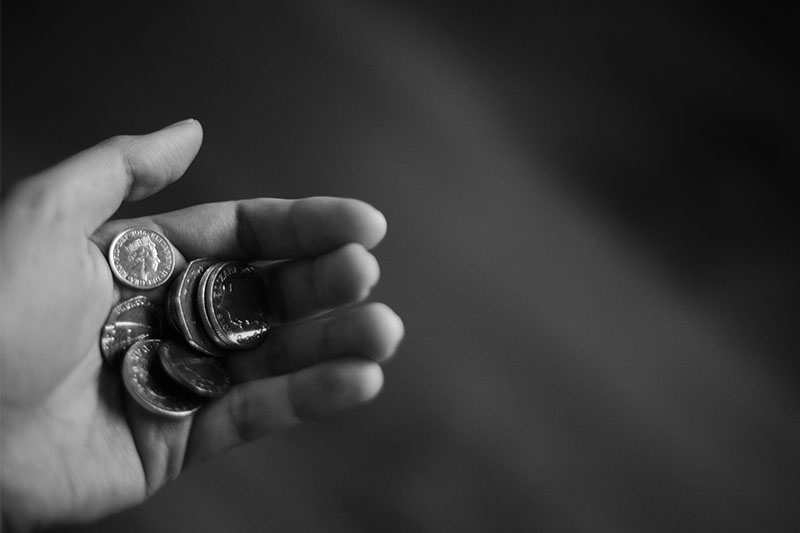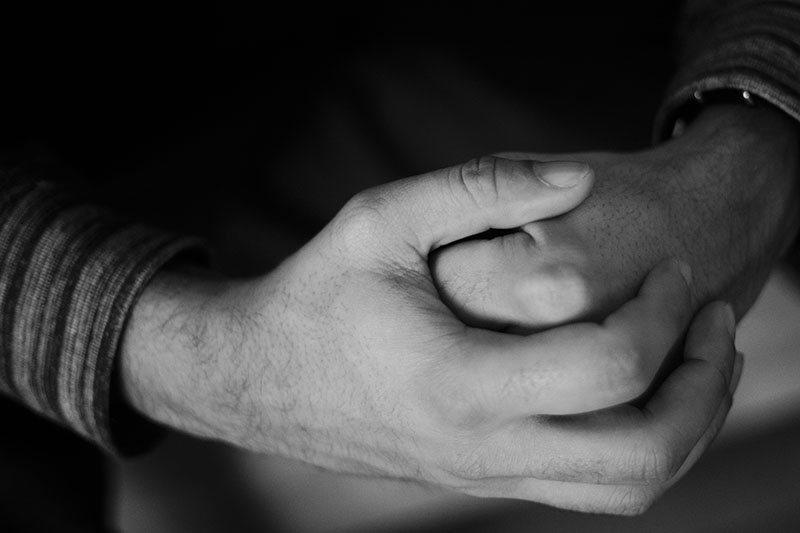There are always going to be difficult points in your life. No matter how well prepared you are, how hard you try to make sure you’ve covered every base, learned as much as you could, saved every dollar that you could to hedge against hard times you expect to happen – no matter how prepared you’ve become, there’s always still going to be hard times ahead. No one can be prepared enough to handle everything, though the goal is obviously to try.
The best way to deal with hard times: treat them as opportunities to up your game.
Not every hard time is going to be what we’d label an emergency situational. A string of unlucky situations, one after another – car breaking down, leak in the roof, all after Christmas bills were due – is not quite what most would call a SHTF situation, but it’s still trying, it’s still hard, and it’s still really frustrating to have to deal with. But when crappy things happen to you and you’re ill prepared, or when you end up with so many bad things happening at once and would’ve been fine if you’d just been hit by one at a time – that’s where you should see an opportunity. To fuel change.

What kind of change? It’s easy to think about what there is to improve about your life – about the amount you’re saving, learning what you should be learning, increasing the volume of food you have stockpiled, making sure you’ve covered all your bases in terms of gear you should be buying – easier to think about than to actually muster the motivation to make sure your ducks are in a row. Once you’ve hit that tight spot, though, the hard times where you’re scrambling, not at all a fan of being in a similar situation again – you can find the motivation you were lacking before.
Turn your personal crisis into an opportunity.
Turn that opportunity into a call to change. To get better. To improve.
You can feel annoyed. You can wallow and feel bad for a while. But once you’ve gotten that out of your system, take that tough time and use it to make you tougher.
How You Can Use a Hard Time to Improve
How can you take your tough time and use it to transform your life – or at least up your game substantially? Here’s how I’d do things:
1. Turn your frustration on its head: into motivation.
If life kicks you when you’re down, it’s time to get an upper hand on life so that next time, you’ll be the one doing the kicking. Yes, this may be easier said than done, but in my personal experience, it’s a lot easier to get motivated when something bad happens to you than when you’re just breezing by life. Turn your frustration into anger if you have to – at yourself for being ill prepared. Then take that frustration, anger, and motivation and use it for step #2.
2. Figure out what you could’ve done to not have ended up in this situation.
Thoughts like, “If only I’d saved more,” “If only I spent more time doing x, y, and z,” pop into my mind after a tough situation. If they don’t pop into yours, get them to. Make a conscious effort to think about the things you could’ve done long ago – the gears you could’ve put in motion weeks, months, or years ago – that would’ve made this situation easier to have to deal with. Chances are being the frustrated, angry, annoyed person you are at the moment of dealing with a tough situation, this will be the simplest thing in the world for you to do.
3. Figure out what little steps you could’ve taken every day to mitigate this kind of situation.
It’s easy to think, “If I had saved more!!” without thinking, “If I put away $X every paycheque into another bank account…”
Don’t stop at thinking of general things you could’ve done to improve your life. Think of the particulars. What specifically could you have done to have prevented this kind of a crappy situation from happening? Great, thought of it.. now…
4. Implement those little steps in your life. Immediately.
Go directly to Jail. Do not pass Go. Do not collect $200.
Do not “wait until things get better” to start implementing improvements into your life. Just start, now. While you’re in the tough situation. While you’re in the gutter.
Why? You have the motivation now. You may not later.
Another reason why: if you could implement these steps toward improvement into your life while your life was a complete mess, there’s absolutely no excuse for continuing to do them when you’re doing just fine. No excuses. That’s what you need. That’s how the motivation to do and be better continues.
5. Mentally play out the next emergency of this kind imagining your little steps implemented.
Finally started to take those little steps toward change and improvement? Play out the situation in your head: you have nearly the exact same thing happen to you, but this time you did exactly what you said you would – you took the time to save $X every paycheque or you spent that hour exercising a day, or whatever it is you thought would help you out if you’d only done it before this emergency.
Got the visual of you having a much easier time? Of you breezing past such a hard time next time? Great. Keep that image of success in your head, because you’re infinitely closer to it taking place.

When Times Get Tough, Do You Get Tougher?
How have you dealt with difficult situations in the past? Do you use hard times to knuckle down and fight the good fight?
Have you ever used a difficult time to motivate you to improve? How did it work out?
Tell me about your experiences in the comments down below.
Of all the prepping suggestions and articles I’ve read, this type is most useful. This article, however, Is particularly well written and insightful.
As “bdc” points out, Start each day by preparing for the end of the day.
With this attitude we can face most events with a tougher countenance.
Read Psalm 144
Thanks so much for the compliment! Hope to see you stop by again & will definitely try to get more articles like this out there.
Every thought expressed is on point.
I would like to add the following:
1. most of the problems in the world can be addressed by looking in the mirror.
2. disposing of, repairing and mastering equipment should be priorities over buying more gear like the latest whiz bang.
3. Like the head of a Seals School commented, the first thing you should do every day is make your bed. No matter how bad the day becomes, you will always have a clean, made bed.
4. Don’t leave home with dishes in the sink, clothes on the floor, undumped trash and unfiled papers strewn about. When you get into the habit of dealing with the minor irritations, you will also get into the habit of dealing with more important problems when they arise.
1. So ridiculously true that it’s a little funny.
2. Agreed – and also buying quality gear that will last in the first place and not wasting hard earned money on crap. Don’t buy shoes that won’t live past the 6 month mark – spend the extra and pay for what will be a forever buy.
3. I still don’t do this, though I’ve grown to greatly appreciate the value in little wins early on in the day. Doing the dishes every night and putting them away every morning is my version of this right now – though I may add making the bed each day to the list.
4. Good advice. Though at times very hard to do. I find that if you absolutely must leave most of the house a mess because you actually are temporarily too busy, at least give yourself one really clean and tidy room to “get away from it all.” Then tackle one room at a time. It’s crazy how much external things can mess with your mood & your head.
Good thoughts, Elise. I think that in addition to learning from the past (emergencies or otherwise), it benefits one to cultivate a certain mentality of adaptiveness and improvisation. The practice of constantly being aware that an emergency can happen to anyone at any time, and that we can’t possibly live normally and also be prepared for every eventuality, and thus need to cultivate the ability to look around us and see how we could “make do” with what we happen to have on and around us at any time. It’s the mental visualization game of saying to oneself, “If X were to happen right now, how would I survive with what I happen to have on me and with what is in my immediate vicinity?” The ability to improvise is extremely important, and something I think many Preppers neglect, as they tend to focus on stockpiling and buying that “perfect” knife, sleeping bag, water filter, etc. I’ve had discussions with fellow preppers and told them, “Well, if something happened five minutes from now, how much good would your $200.00 knife be to you?” If something happened to me right now, I would only have my Swiss Army Knife and a flattened role of duct tape. The rest, I’d have to figure out as I go. Knowing how to improvise gives one a great sense of confidence, and makes the tough times less scary. We all need to practice tapping into our inner MacGyver (the original, not the new silly version).
Definitely could not agree more about the mentality of adaptive-ness. I actually think it helps you in absolutely every area of life, not just with preparedness – though certainly a great deal with anything survival related.
I think many preppers neglect it because it’s difficult to cultivate; to know how exactly you should improve and get better at it. Though I think your response, namely the part about asking the “what ifs” in advance, is an enormous help in getting yourself better at this skill. I wonder if there are any other ways for getting better at this adaptive way of thinking – besides actually going through tough times that its. The only thing I can think of is putting yourself in an artificial situation to test yourself – though being sure to take precautions to make sure the artificial difficult situation doesn’t turn itself into a real emergency. What do you think?